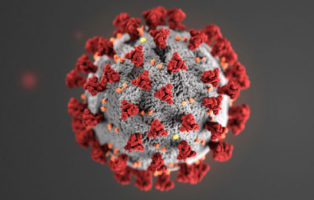Every year, the American Heart Association’s Scientific Sessions attracts thousands of doctors, scientists, researchers, investigators, and other healthcare professionals from around the globe who come together to discuss new science to reduce the impact of cardiovascular disease. At the 2020 Scientific Sessions, Dr. Mary Cushman, MD, University of Vermont and an Association Eastern States Board member, presented during a session entitled, “Latest Insights on COVID-19 and Cardiovascular Disease” on November 17th.
 Physicians from across the country presented on the intersection of COVID-19 and cardiovascular disease in adults and children, while exploring the long-term impact on health. Dr. Cushman followed Dr. Anthony Fauci, the top infectious disease expert in the U.S., who presented on the public health and scientific challenges encountered as we navigate COVID-19. Fauci provided his insights around the global spread of this virus, a review of prevention measures, along with available treatments and vaccines that could be available soon.
Physicians from across the country presented on the intersection of COVID-19 and cardiovascular disease in adults and children, while exploring the long-term impact on health. Dr. Cushman followed Dr. Anthony Fauci, the top infectious disease expert in the U.S., who presented on the public health and scientific challenges encountered as we navigate COVID-19. Fauci provided his insights around the global spread of this virus, a review of prevention measures, along with available treatments and vaccines that could be available soon.
As a Hematologist, Dr. Cushman’s presentation focused on the thrombotic complications (blood clots) resulting from COVID-19. She indicated that COVID-19 patients with “thrombo-inflammation” were 4.7 times more likely be to hospitalized and 2.1 times more likely to die from complications of virus.
The process can get increasingly severe starting with damage to the vascular endothelium, the thin layer of cells that line blood vessels, followed by the formation of blood clots (or thrombosis) which can then lead to heart attack, stroke and sometimes multiple organ failure.
Although more research is needed, according to Dr. Cushman, the use of anti-thrombotic agents such as Heparin could help these patients. Venous thromboembolism (VTE), refers to blood clots in the veins and Dr. Cushman indicated that the rate of this condition in COVID-19 patients was much higher than in other viral infections. A biomarker to predict risk for clotting, called the D-Dimer test, could also help determine higher risk for bleeding if a patient is given anti-thrombotic medication.
Dr. Cushman cited several ongoing trials related to the use of Heparin to treat patients since it is inexpensive, widely available and well understood. She concluded by stating that anti-thrombotic interventions show promise that they could slow down disease progression in COVID-19 patients.
Additional presenters included: Judith Hochman, MD, NYU School of Medicine; Donald-Lloyd Jones, MD, Northwestern University; Jane Newburger, MD, Children’s Hospital Boston; Aaron Baggish, MD, Massachusetts General Hospital; and Amit Khera, MD, UT Southwestern Medical Center.